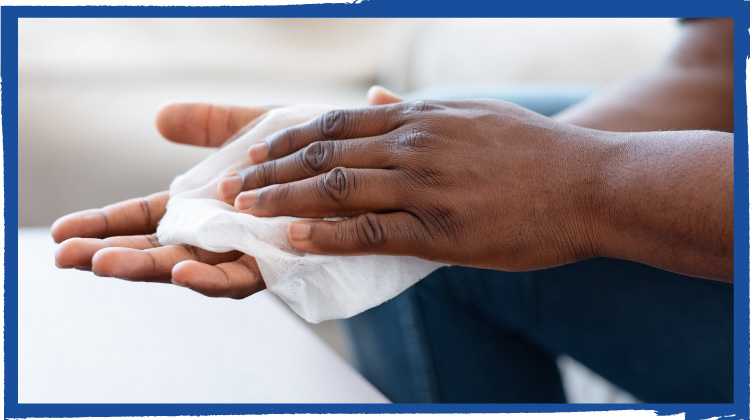
Myth vs reality: How much do you know about our water?
We drink it, use it for cleaning, and have fun in it, but how much do you actually know about the water we rely on daily? We take a look at some common misconceptions about water and our water systems and the truth behind them…
Myth #1 It’s fine to flush wet wipes
Reality – The vast majority of wet wipes shouldn’t be flushed down the loo. Flushing them can cause significant blockages, damaging our water pipes and harming the environment if they get into our waterways.
This is because most wipes contain some form of plastic, so they don’t disintegrate in the same way toilet paper does. Confusingly, you may see wipes labelled ‘flushable’ but this simply means they’ll disappear from your toilet bowl. They still take a long time to break down and can build up in the pipes causing blockages.
The only wipes ok to flush are those that carry the official ‘Fine to Flush’ symbol. This means they’ve been tested to make sure they break down quickly.
Learn more about our 3P campaign and what’s ok to flush, and what’s not.
Myth #2 Water companies manage everything relating to water
Reality – Our water is crucial to all of us, and we can all play a part in managing and protecting the water and everything which affects it. Our Upstream Thinking programme is delivered through a range of partnerships with the Westcountry Rivers and Devon and Cornwall Wildlife Trusts, government agencies, environmental experts, landowners, and tenant farmers, and we’re all consistently working on a wide range of natural solutions to improve and protect water quality and delivery.
Myth #3 Water is everywhere so there’s no need to save it
Reality - It may seem like there’s plenty of water to go around (especially as you reach for your umbrella on yet another rainy day!), but factors like population growth and climate change are putting increasing pressure on water supplies, making it essential to preserve our precious resources.
The amount of water we use is rising too – with the average household using 143 litres per person per day in 2020 compared to around 85 litres in the 1960s. The Environment Agency has warned that demand could outstrip supply and the UK could find itself facing a “jaws of death”, where there isn’t enough water to fulfil our needs, by 2050 if action isn’t taken.
See our range of free water-saving products to help you cut usage.
Myth #4 There’s no real way to measure river quality
Reality – It’s really important to measure the water quality in our rivers as they’re a major source of drinking water as well as being used by industry and for leisure activity. River quality is measured by the government using a series of chemical and biological indicators but we’re running our own pilot schemes on the Dart and Tavy rivers to learn what we need to do and the best way we can do it. Ultimately our aim is to make these the region’s first designated river bathing spots.
Myth #5 It’s good to put coffee grounds down the sink – it helps clean your pipes
Reality – Unfortunately this isn’t true. Coffee grounds don’t dissolve or break down in water, so if you rinse them down the drain they’re likely to compact together and cause a blockage - which could result in a pricey repair. It’s best to pop your coffee grounds in the bin, or why not try using them as fertiliser? They add organic matter to the soil improving drainage and water retention.
Myth #6 The water that comes out of our taps doesn’t come from rivers
Reality – Where your water comes from depends on where you live. Here in the South West, 90% of our water comes from surface water sources like reservoirs and rivers. Just 10% comes from groundwater sources like springs and wells. In comparison, Wessex Water gets 75% of its water supplies from groundwater.
Find out more about where our water comes from.

